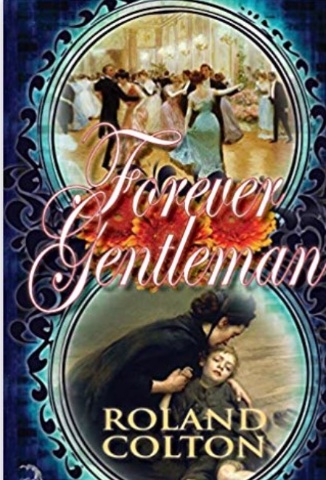Roland Colton Brings Us a Piano Music eBook
Mentioned Music Available at a Click as You Read
By: Susan Hall - Feb 18, 2020
Roland Colton
Forever Gentleman
eBook
Available on Amazon
Romance experts report that their readers expect a lot more than romance. Roland Colton delivers this in his novel Forever Gentleman.
This engaging novel has several novel twists. It tells the tale of Nathan Sinclair, an architect and sometimes concert pianist of first-rate talents in both disciplines. When we meet him, he has been introduced to a good woman who deeply attracts him. He vows to settle a debt to a loan broker. He has incurred the debt because a client has been unable to pay up. One thread in the story is a Dickensian tour of Victorian debtor courts and jail in 1869. Colton is able to lead us through this tortuous path with vigorous, clear writing.
The main threads of Forever Gentleman have to do with romance. This comes in two forms. One of them is an unexpected tale of love of a good woman, who Sinclair prefers to the wealthiest, most beautiful woman in England, who wants him desperately. Winding our way through this part of the story is one cliffhanger that keeps us turning pages.
The other is the introduction of the performance of music which Sinclair is performing. Here is a list of the pieces one can hear during the course of the book by pressing an arrow.
Trio No. 1 G Major, Mozart; Quatrieme Ballade No. 52, Chopin; Impromptu in G-Flat Major, Schubert; Etude Op. 25, No. 4, Chopin; Pastoral Sonata, Op. 29, Beethoven; Mazurka in C Sharp Minor, Op. 50, No. 3, Chopin; Etude in G Flat Major, Op. 10, No. 5, Chopin; Six Pieces for Piano, Ondine; Scherzo in F, Muller; Winter Wind Etude, Chopin; Sonata for C Major, Mozart; Hungarian Rhapsody No 2, Liszt; Italian Symphony, Mendelsohn; Symphony No. 6, Beethoven; Concerto in D Flat, Liszt; Pathetique Sonata, Beethoven; On the Beautiful Danube, Strauss; Symphony No. 1, Beethoven; Symphony No. 9, Beethoven; Concerto in A Minor, Schumann; F Major Nocturne, Bizet; Moonlight Sonata, Beethoven; Piano Trio No. 2, Schubert; Scherzo No. 2, Chopin; Song without Words, Mendelsohn; Tempest Sonata, Beethoven; Symphony No. 7, Beethoven; Surprise Symphony, Haydn; “La Campanella” Etude, Liszt; Wedding March from Midsummer Night’s Dream, Mendelsohn. There are many interesting original excerpts related to the story. One is Nathan’s Despair.
At one point, the beautiful pseudo-love interest provides an orchestra to surprise Nathan. She is giving him every pianist's dream.
Ours might be to sit back and hear the story without resorting to the disruption of YouTube. You click, and listen to the music as you read. The device may prove an inviting addition to books about music in the future.
Colton’s book belies that notion that all romance begins with a kiss and everything changes thereafter. He is forced to choose between true love and the fulfillment of his wildest dreams. He backs into the solution. He is less flawed than he is weak.
Remember too that pianists are often perceived as sex symbols. Long before Ken Russell produced the film “Lisztomania,” the swaying hips, tossed back head and fingers ripping up and down the keyboard turned listeners on. Roger Daltry, who played Liszt in the film, was surrounded by hard-to-forget groupies and mistresses. Although Colton does not take the opportunity to describe the sexual elements of pianistic performance, one imagines them reading the text and listening to the musical excerpts.
The story is told from Nathan’s point of view. It used to be that male romance writers used women’s pseudonyms. Colton does not. He provides a truly different perspective on love outcomes in a well written tale. We are catapulted back into the Victorian era not simply as a romantic story, but with well-devised mystery and suspense, sprinkled liberally and surprisingly with Beethoven and Chopin.

